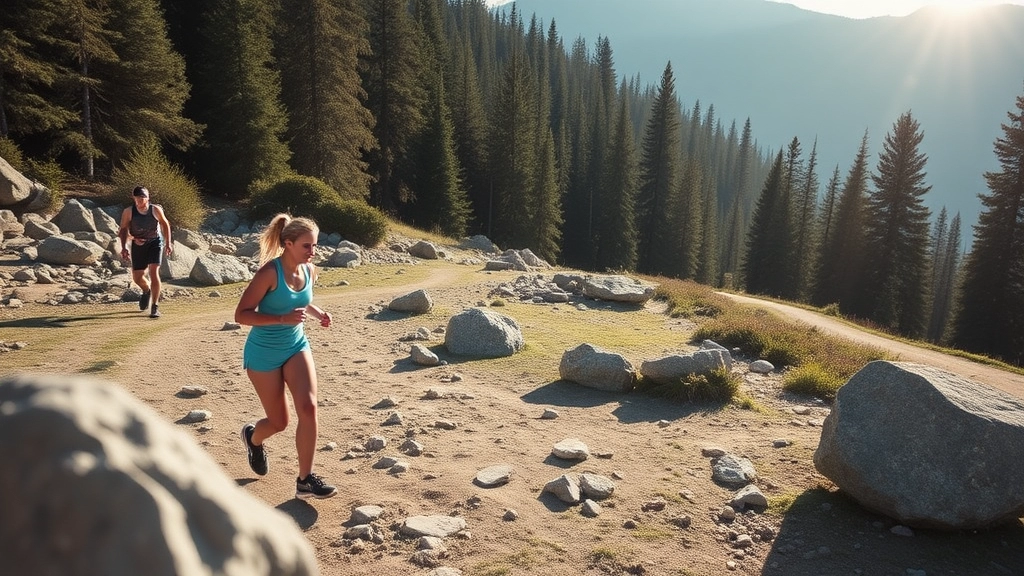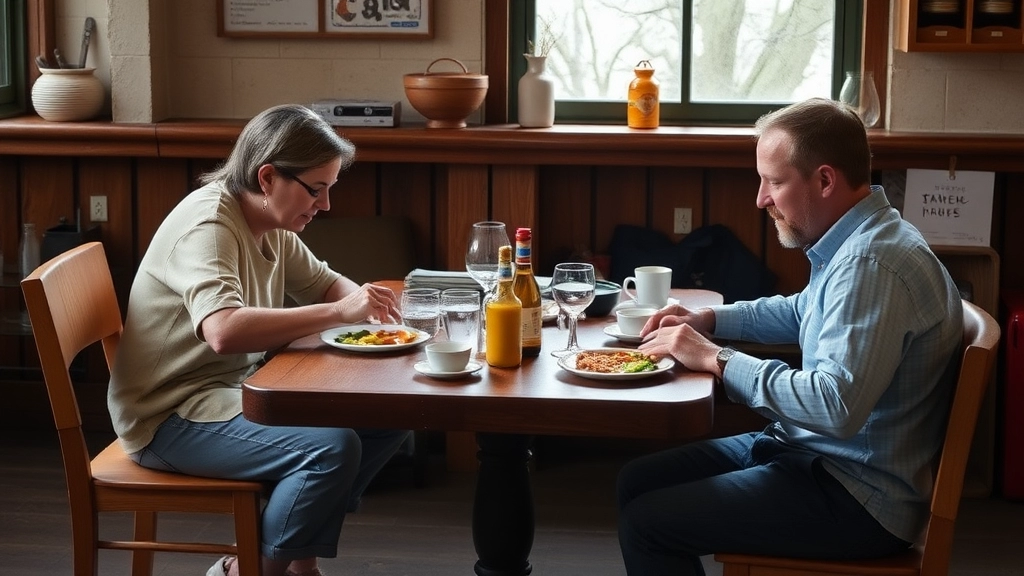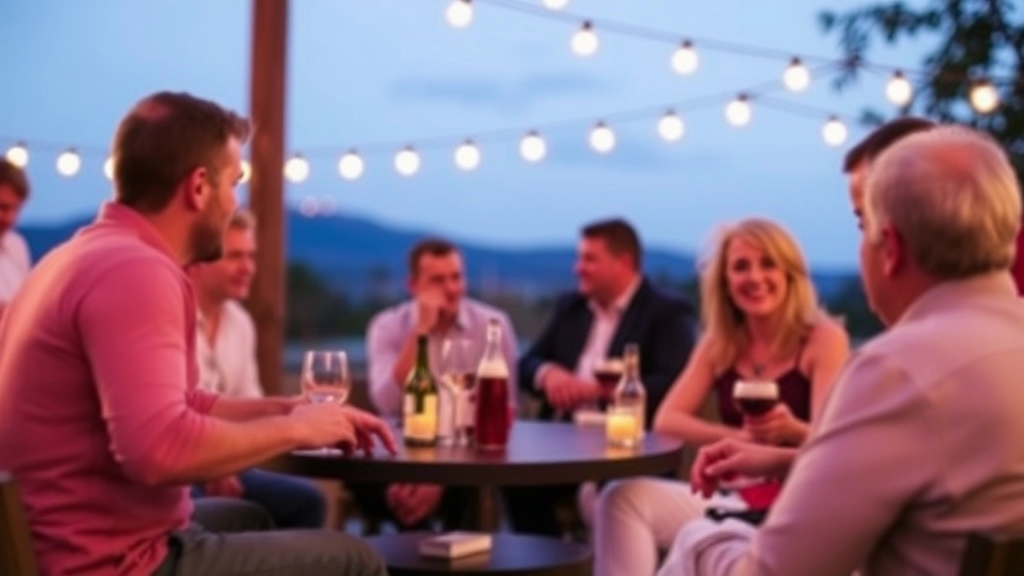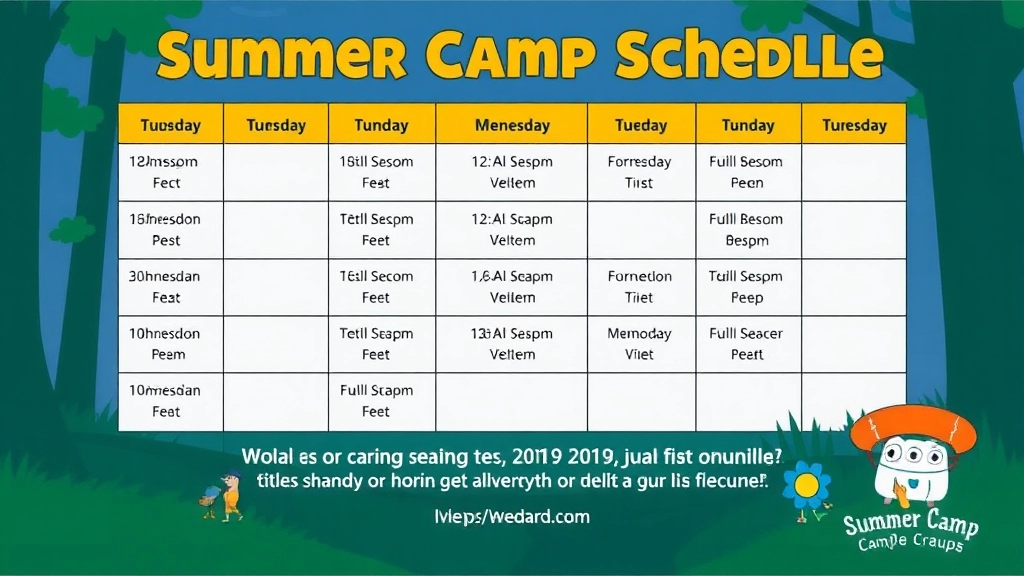Summer Camp Daily Schedule Sample
Are you looking for a comprehensive and engaging summer camp daily schedule sample that ensures kids have a balanced mix of fun, learning, and relaxation? Look no further! This article outlines a well-rounded daily itinerary that includes a dynamic morning routine, physical and outdoor activities, creative and educational sessions, a nutritious lunch and rest period, afternoon adventures, evening social and wind-down activities, and even weekly themes and special events. Flexibility and contingency planning are also key components to ensure a seamless experience, no matter what the day brings.
From waking up early and starting the day with mindfulness and a healthy breakfast, to engaging in team sports, nature walks, and creative projects, this schedule is designed to keep kids active and excited throughout the day. With detailed sections on each part of the day, you’ll find practical tips and real-life examples to make each moment count. Whether it’s building skills during afternoon adventures or winding down with a digital detox in the evening, this guide provides everything you need for a successful and memorable summer camp experience.
Morning Routine to Start the Day
Alright, let’s dive right in. How often do you wake up feeling like you’re already behind? The morning routine can make or break your day. Trust me, I’ve been there, and I know how crucial it is to kick things off right. So, how do you make sure you’re set up for success from the get-go? Let’s break it down.
Wake Up Early
First thing’s first: wake up early. I know, I know, easier said than done. But getting up before the world does gives you that precious time to get your head in the game. It’s your moment to breathe, plan, and get a jumpstart.
Hydrate and Stretch
As soon as you’re up, hydrate. Your body’s been on a mini fast all night, and it’s craving water. Drink a big glass of water to kickstart your metabolism. Then, stretch. Nothing fancyâjust get your blood flowing. Think of it as waking up your muscles and joints.
Mindfulness and Planning
Next, spend a few minutes on mindfulness. This doesn’t have to be some deep, spiritual journey. Just take a moment to breathe deeply and set your intentions for the day. What do you want to achieve? What’s your main focus? Jot it down if that helps.
Healthy Breakfast
Now, let’s talk about breakfast. Skip the sugary cereals and go for something that fuels you. Think protein and healthy fats. Eggs, avocado toast, or a smoothie packed with greens and protein powder. Your brain and body will thank you.
Review Your Goals
Finally, take a few minutes to review your goals for the day. What’s on your to-do list? Prioritise the big tasks first. Knock them out when your energy is high. You’ll feel like a rockstar crossing them off early.
Quick Recap
- Wake up early to get a head start.
- Hydrate and stretch to wake up your body.
- Spend a few minutes on mindfulness.
- Eat a healthy breakfast.
- Review your goals and prioritise.
Real Talk: Why It Matters
You might be thinking, âWhy bother with all this?â Here’s the deal: starting your day with a solid routine sets the tone. It’s like laying the foundation for a house. Without it, everything else wobbles. Trust me, I’ve seen it time and againâboth in my life and in others’.
When you start strong, you’re more likely to stay productive and focused. You’ll handle stress better, and you won’t feel like you’re playing catch-up all day. So, give it a shot. Tweak it until it fits your life, but make it a non-negotiable part of your day.
Remember, the morning routine is your launchpad. Make it count. For more tips on starting your day right, check out our summer camp day schedule and if you’re planning for the future, explore our Frederick County summer camps for 2024.
Physical and Outdoor Activities

Ever feel like your kids are glued to screens all day? You’re not alone.
Getting them outside is a game-changer.
Why Physical Activities Matter
Kids need to move. It’s not just about burning energy. It’s about:
- Building strength
- Boosting mood
- Enhancing social skills
Outdoor Games and Sports
We start with the basics. Think football, tag, and relay races.
Simple, but effective.
Why?
- Teamwork: They learn to work together.
- Coordination: They improve their motor skills.
- Fun: They have a blast.
Nature Walks and Exploration
Who said learning only happens in classrooms?
Nature walks are gold mines for education and adventure.
Here’s what we do:
- Scavenger Hunts: Find leaves, rocks, and bugs.
- Bird Watching: Spot and identify different species.
- Storytime: Sit under a tree and read a nature-themed book.
Water Activities
If you’ve got access to a pool or lake, use it.
Swimming is fantastic exercise and a crucial life skill.
We also include:
- Water Balloon Fights: Pure joy and laughter.
- Kayaking: For the older kids, it’s a thrill.
Safety First
Before we dive in, safety is key.
Our checklist:
- Supervision: Always have an adult present.
- Gear: Helmets, life jackets, and proper footwear.
- Rules: Clear guidelines for every activity.
Creative and Educational Sessions
Ever wonder how to keep kids engaged and learning without them feeling like they’re stuck in a classroom? That’s where our Creative and Educational Sessions come in. These aren’t just your average sit-down-and-listen activities. We’re talking about hands-on, minds-on experiences that make learning fun and memorable.
Why Creative and Educational Sessions Matter
Let’s face it, kids get bored easily. And when they’re bored, they’re not learning. Our sessions are designed to spark curiosity and keep that fire burning. We mix creativity with education so that kids are excited to dive into new topics. Think of it as stealth learningâthey’re having so much fun, they don’t even realize they’re picking up new skills and knowledge.
What to Expect in Our Sessions
So, what exactly do we do in these sessions? Here’s a breakdown:
- Art and Craft Projects: From painting and drawing to sculpting and crafting, we let kids explore their artistic side. This isn’t just about making pretty pictures; it’s about developing fine motor skills, learning to follow instructions, and fostering creativity.
- Science Experiments: Remember how cool it was to watch a volcano erupt in science class? We bring that excitement back with hands-on experiments that make kids say, “Wow!” Whether it’s making slime or launching homemade rockets, these activities turn abstract concepts into tangible experiences.
- Storytelling and Writing: We encourage kids to let their imaginations run wild with storytelling sessions. They get to create their own characters, plots, and worlds. It’s a fantastic way to improve language skills and boost confidence.
- Math Games and Puzzles: Math doesn’t have to be a chore. We turn it into a game with puzzles, challenges, and interactive activities that make numbers fun. Kids learn problem-solving skills without even realizing they’re doing math.
- History and Geography Adventures: We bring history and geography to life with interactive lessons and activities. Kids might find themselves “traveling” to ancient Egypt or exploring the Amazon rainforest. It’s all about making learning an adventure.
Real-Life Examples
One time, we had a group of kids build their own mini ecosystems in glass jars. They got to pick the plants, add the soil, and even introduce tiny insects. Not only did they learn about ecosystems and biodiversity, but they also took home a living project they could watch grow over time.
Another hit was our “Inventor’s Workshop,” where kids designed and built their own simple machines. They used everyday materials to create things like catapults and pulleys. It was a blast seeing their faces light up when their inventions actually worked!
Keeping It Fresh
We know that kids’ interests change, so we keep our sessions dynamic. We regularly update our activities to include the latest trends and topics that kids are buzzing about. This way, there’s always something new and exciting to look forward to.
For more ideas on how to keep kids entertained and educated, check out our summer camp coloring pages for kids. And if you’re looking for some delicious meal ideas, our summer camp food menu will surely inspire you.
Lunch and Rest Period

Ever wondered how to keep the kids from crashing after a busy morning?
Yeah, me too.
Lunch and rest time are crucial.
Let’s dive in.
Why Lunch and Rest Matter
Kids need fuel.
They’ve been running around all morning.
A good lunch sets them up for the rest of the day.
What to Serve for Lunch
Keep it simple and nutritious.
- Sandwiches with whole grain bread
- Fresh fruits and veggies
- Protein-packed snacks like cheese or nuts
- Plenty of water
Avoid sugary drinks and snacks.
They’ll just lead to crashes later.
Creating a Restful Environment
After lunch, it’s rest time.
But how do you make sure they actually rest?
Here’s what works:
- Quiet Time: Encourage reading or quiet play.
- Comfortable Space: Soft mats or cushions.
- Low Lights: Dim the lights to create a calm atmosphere.
- Gentle Music: Soft background tunes can help.
Why Rest is Non-Negotiable
Skipping rest is a bad idea.
Kids get cranky.
They lose focus.
Rest recharges their batteries.
Real-life Example
Remember that time I thought skipping rest would give us more playtime?
Big mistake.
The kids were exhausted by 3 PM.
Never again.
Linking Up
Check out our Afternoon Adventure and Skill Development section to see how a good rest period sets the stage for more fun.
Afternoon Adventure and Skill Development
Ever wondered how to make the most out of your afternoons? How to turn that post-lunch slump into a time of excitement and growth? Well, that’s what we’re diving into right now. Let’s talk about Afternoon Adventure and Skill Development.
Why Afternoon Adventures?
We all hit that mid-day wall where energy dips, and productivity can take a nosedive. But guess what? That’s the perfect time to shake things up with some adventure. Why? Because:
- It recharges your brain: A change of scenery and some physical activity can boost your mental clarity.
- It’s a stress buster: Outdoor activities and new experiences can melt away stress.
- It builds skills: Whether it’s learning a new sport or mastering a craft, these activities are goldmines for personal growth.
Types of Afternoon Adventures
You don’t need to climb Everest to have an adventure. Here are some simple yet effective ideas:
- Nature Walks: Explore local parks or nature reserves. It’s free, it’s refreshing, and it’s grounding.
- Team Sports: Join a local football or basketball pick-up game. It’s social and great for fitness.
- Workshops: Attend a pottery, cooking, or DIY workshop. You’ll pick up new skills and maybe even a new hobby.
- Volunteering: Spend a few hours helping out at a local charity. It’s fulfilling and connects you with your community.
Skill Development Strategies
Now, let’s talk skills. How do you turn an afternoon into a skill-building session?
- Set Clear Goals: Know what you want to achieve. Whether it’s improving your tennis serve or learning to code, clarity is key.
- Break It Down: Chop your goals into bite-sized tasks. This makes them less intimidating and more manageable.
- Practice Consistently: Skills aren’t built in a day. Regular, focused practice is what gets you there.
- Seek Feedback: Whether from a mentor, coach, or even a friend, constructive feedback is invaluable.
Real Talk: My Own Adventures
I remember when I first started taking afternoon walks. Initially, it felt like a waste of time. But soon, I noticed my creativity spiking and my stress levels dropping. Not to mention, I stumbled upon some hidden gems in my own neighbourhood. It’s these little adventures that keep life interesting and growth continuous.
Linking It All Together
The beauty of afternoon adventures and skill development is how they tie into other parts of your day. Your Daily Itinerary sets the tone, while Fun Activities keep you active. Creative and Educational Sessions stimulate your mind, and by the time you reach your afternoon adventure, you’re ready for more. And then, it all winds down nicely with Evening Social and Wind-Down Activities.
Evening Social and Wind-Down Activities

Ever feel like your evenings are just a blur of exhaustion?
You’re not alone.
After a long day, we all crave a bit of relaxation and social time.
But how do you make the most of those precious hours?
Let’s dive in.
Unwind with Purpose
First off, evening social and wind-down activities are crucial.
They help you de-stress and prepare for a good night’s sleep.
But it’s not just about plopping in front of the telly.
Social Time
Connect with friends or family.
Why?
Because human connections are vital for mental health.
- Host a casual dinner
- Play a board game
- Go for a walk together
These simple activities can make a world of difference.
Solo Wind-Down
Prefer some alone time?
No problem.
Here are some ideas:
- Read a book: Escape into a different world.
- Meditate: Calm your mind.
- Journal: Reflect on your day.
Digital Detox
Ever heard of a digital detox?
It’s a game-changer.
Put your phone away an hour before bed.
Trust me, you’ll sleep better.
Evening Routine
Create a routine.
Consistency is key.
- Set a bedtime: Stick to it.
- Dim the lights: Signal to your body it’s time to wind down.
- Warm bath: Relax your muscles.
Real-Life Example
I used to scroll through social media until midnight.
Guess what?
I was always tired.
Then, I swapped my phone for a book.
Now, I fall asleep faster and wake up refreshed.
Weekly Themes and Special Events
Ever wonder how to keep kids engaged and excited throughout the week? Trust me, you’re not alone. It’s a common concern for many parents and camp organisers. That’s where weekly themes and special events come into play. These not only add a layer of fun but also ensure that each day is unique and memorable.
Why Weekly Themes Matter
Weekly themes are game-changers. They provide structure and variety, making sure kids don’t feel like they’re stuck in a monotonous loop. Plus, they make planning activities a breeze. Imagine a pirate week where kids hunt for treasure, or a science week where they conduct cool experiments. Sounds fun, right? It’s not just about fun, though. These themes can be educational too, teaching kids about different cultures, history, or even basic life skills.
Examples of Weekly Themes
Here are some killer themes that have worked wonders:
- Adventure Week: Think scavenger hunts, map reading, and survival skills.
- Art and Craft Week: Let their creativity flow with painting, sculpting, and DIY projects.
- Science Week: Simple experiments, nature walks, and stargazing.
- Sports Week: Introduce them to various sports, from football to archery.
- Cultural Week: Explore different cultures with food, music, and dances.
Special Events â The Cherry on Top
Special events break the routine and give kids something to look forward to. They can be anything from talent shows to themed parties. Here’s how to make them work:
- Plan Ahead: Make sure you have all the materials and permissions you need.
- Get Everyone Involved: Encourage both kids and staff to participate.
- Keep It Simple: Sometimes, less is more. A simple event can be just as impactful as an elaborate one.
Real Stories, Real Impact
I remember one time during our Adventure Week, we organised a treasure hunt. The kids were divided into teams, each with their own map and clues. By the end of the day, not only had they found the treasure, but they’d also learned teamwork and problem-solving. The smiles on their faces were priceless. That’s the power of themed activities and special events.
Internal Linking Opportunities
To make the most out of weekly themes and special events, check out our sections on summer themes for an unforgettable camp and summer camp theme days. These sections offer more detailed ideas that you can easily integrate into your themed weeks.
Flexibility and Contingency Planning
Remember, flexibility is key. Weather can change, kids might have different interests, and sometimes things just don’t go as planned. That’s why having a backup plan is crucial. For more on this, see our section on Flexibility and Contingency Planning.
Flexibility and Contingency Planning
Ever wondered what happens when things don’t go as planned?
Yeah, me too.
Life throws curveballs, and guess what? Our camp schedule needs to handle that.
We need flexibility and contingency planning.
Why is Flexibility Important?
Imagine it’s a rainy day, and you had outdoor activities lined up.
What now?
Here’s where flexibility comes in:
- Adaptability: We can quickly switch to indoor activities.
- Preparedness: Always have a backup plan in place.
- Smooth Transitions: Keeps the day flowing without hiccups.
Contingency Planning: The Backup Plan
Now, let’s talk about the nitty-gritty.
What’s our game plan when things go sideways?
- Weather Changes: Indoor games, crafting sessions, or storytelling.
- Health Issues: First aid kits, quick access to medical help, and a safe spot for resting.
- Unexpected Delays: Extra activities like impromptu talent shows or reading sessions.
Real-Life Example
Last summer, we had a sudden thunderstorm.
Outdoor games were a no-go.
So, we pivoted to an indoor scavenger hunt.
Kids loved it.
No one missed out on fun, and the day was saved.
Internal Linking Opportunities
For more on how we handle unexpected situations, check out our Sample Summer Camp Schedule.
It’s packed with tips on keeping kids engaged, rain or shine.
Keep It Real, Keep It Fresh
Flexibility isn’t just a buzzword.
It’s a lifesaver.
It keeps the experience enjoyable, no matter what.
And it’s not just about having a Plan B.
It’s about being ready for anything.
Key Takeaways
- Always Have a Backup: Be prepared for the unexpected.
- Stay Adaptable: Flexibility keeps the fun going.
- Be Ready to Pivot: Quick changes, smooth transitions.
In the end, flexibility and contingency planning are our secret weapons to ensure each day is a hit.
Got any more questions about our planning?
Dive into our Ultimate Guide to Must-Have Items for Summer Camp for more insights.
FAQs
What types of physical and outdoor activities are included in the summer camp daily schedule?
The summer camp includes various physical and outdoor activities such as football, tag, relay races, nature walks, scavenger hunts, bird watching, storytime, swimming, water balloon fights, and kayaking.
Why are physical activities important for kids at summer camp?
Physical activities are essential for kids because they help in building strength, boosting mood, and enhancing social skills. They also improve teamwork, coordination, and provide a lot of fun.
How does the camp ensure the safety of children during outdoor activities?
Safety is a priority at the camp. The camp ensures safety by having adult supervision, using appropriate gear such as helmets and life jackets, and setting clear rules for every activity.
What is included in the lunch and rest period at the summer camp?
The lunch and rest period includes nutritious meals like sandwiches with whole grain bread, fresh fruits and veggies, protein-packed snacks, and plenty of water. After lunch, children have a rest period with quiet time, comfortable spaces, low lights, and gentle music.
Why is rest important for kids during the summer camp day?
Rest is crucial because it helps kids recharge their batteries, maintain focus, and avoid crankiness. Skipping rest can lead to exhaustion and decreased participation in afternoon activities.
What are some examples of evening social and wind-down activities at the camp?
Evening activities include social time with friends or family, such as casual dinners, board games, and walks. For solo wind-down, activities include reading, meditating, and journaling. A digital detox is also encouraged by putting away phones an hour before bed.
How does the camp create a restful environment for kids during the rest period?
The camp creates a restful environment by encouraging quiet time, providing comfortable spaces with soft mats or cushions, dimming the lights, and playing gentle background music.
What should be avoided during lunch to prevent kids from crashing later in the day?
Sugary drinks and snacks should be avoided during lunch as they can lead to energy crashes later in the day.
How does the camp manage evening routines for better sleep?
The camp manages evening routines by setting consistent bedtimes, dimming the lights to signal winding down, and encouraging activities like warm baths to relax muscles.
References
-
Physical Activity Guidelines for Children
-
Healthy Eating for Kids
-
Children and Sleep: How Much Do They Need?

